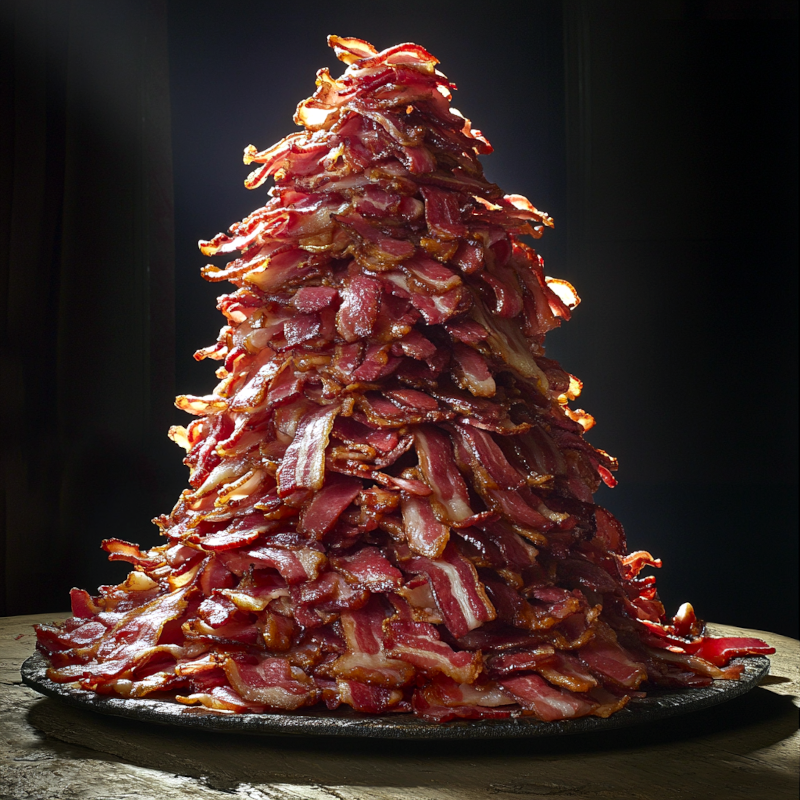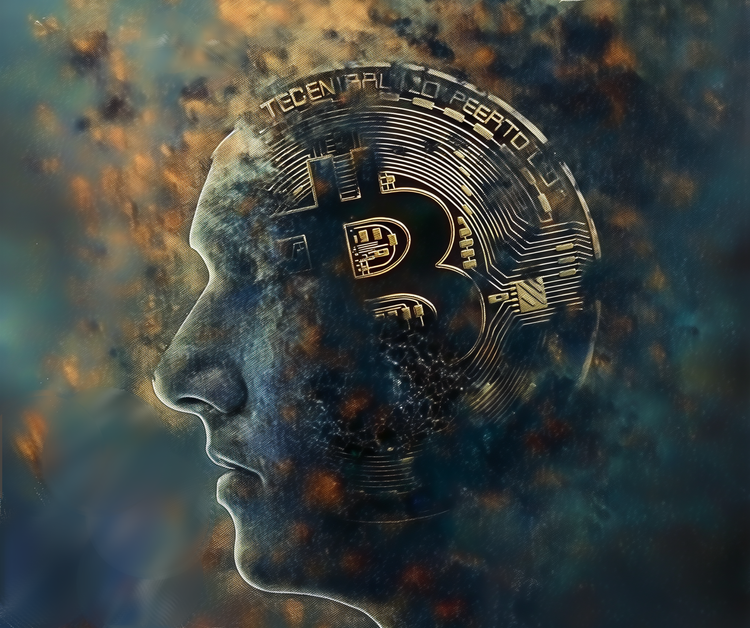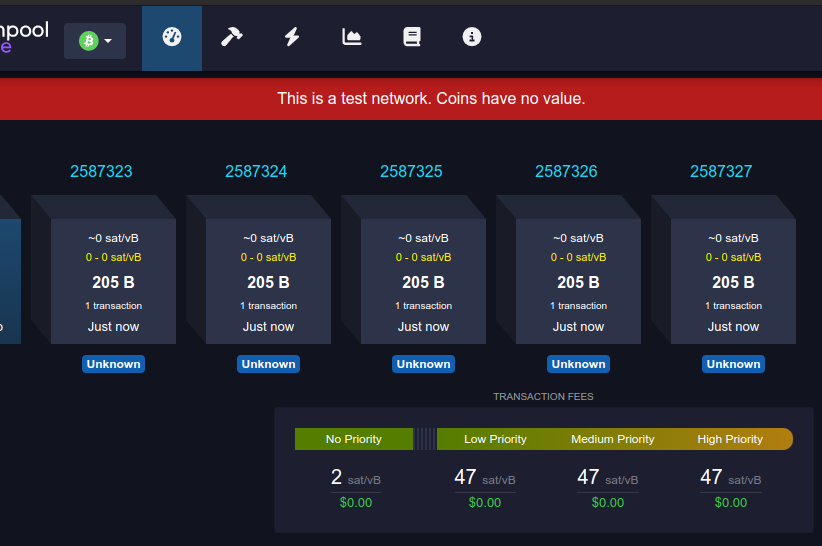A Critique of Twitter's Changes

A year ago I published a speculative essay on why Elon Musk should acquire Twitter.
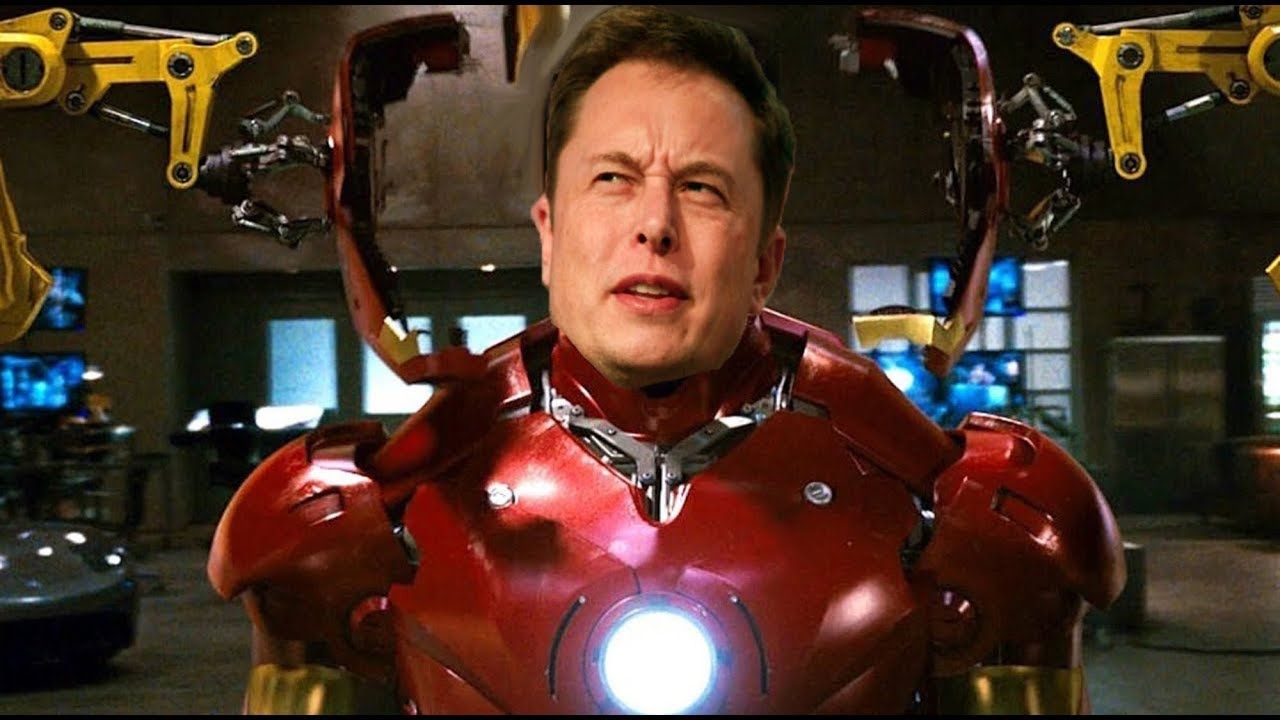
It's far too early to say if Musk is heading in the direction I outlined, though I do wish to weigh in on some of what has transpired in the past year.
Flip Flopping
Elon has been up front about intending to make changes and run Twitter more like a start-up that experiments with its operations.
Please note that Twitter will do lots of dumb things in coming months.
— Elon Musk (@elonmusk) November 9, 2022
We will keep what works & change what doesn’t.
Clearly, this strategy has pros and cons. If it works, Twitter will end up providing a better user experience than in the Dorsey era. But the question becomes: at what cost of alienation and whiplash to users?
Last week Twitter began removing blue check marks from hundreds of thousands of accounts belonging to celebrities, journalists and other public figures who were verified by the platform before Twitter Blue was a thing.
Easy come, easy go. pic.twitter.com/Kqq10ICCme
— Jameson Lopp (@lopp) April 20, 2023
Elon later announced he's personally paying for some high-profile users to remain verified on Twitter, even when they'd indicated they didn't want this status under his new subscription system. An odd self-own when he was acting like a hardliner about everyone paying $8 a month for Twitter Blue...
To all complainers, please continue complaining, but it will cost $8
— Elon Musk (@elonmusk) November 2, 2022
Then, over the weekend folks noticed that blue checks had been reinstated to the Twitter profiles of many accounts with more than 1 million followers. Looks like I'm out of luck, as I don't even meet half that threshold...
There was further confusion after blue checks returned to several accounts of high-profile Twitter users who are no longer alive, with the message: "This account is verified because they are subscribed to Twitter Blue and verified their phone number." This includes the accounts of:
- Journalist Jamal Khashoggi
- Chef Anthony Bourdain
- NBA star Kobe Bryant
- Actor Chadwick Boseman
I struggle to find a reason for deceased individuals to be verified, unless perhaps their account is still active and being operated by their estate, but that doesn't appear to be the case here.
Suffice to say that the blue check policy does not feel very well thought out, and the folks behind it seem to be flying by the seat of their pants trying to balance revenue goals against the desire to retain integrity and trust in the platform.
Security
In addition to retaining a blue check, Twitter allows paying subscribers the option to continue using text messages for two-factor authentication.
Come on! We've known for over 7 years that SMS 2FA is a joke at best and a vulnerability at worst! When I was working at BitGo back in 2016, we determined that the convenience was not worth the security trade-offs.

Privacy
I was one of the first folks to sign up for Twitter Blue, mainly because I appreciate being able to edit typos in my tweets. Several months later, I got a notification that my subscription had been terminated.
aaaaaand there it is. Twitter Blue is no longer compatible with privacy preserving phone services. pic.twitter.com/lvZIrMoVxj
— Jameson Lopp (@lopp) December 20, 2022
This is especially annoying in my situation, as I had to submit my driver license to Twitter many years ago in order to receive my verified status. Point being - I've already provided stronger proof that my account is controlled by me than any Twitter Blue user is providing to receive their verification.
Why is Elon relying upon using phone numbers as a form of KYC? Maybe because sophisticated spammers and scammers can still pay $8 via cards for which they don't allow the transaction to settle? Bitcoin fixes this...
“Payment as proof of human is a trap and I'm not aligned with that at all. The payment systems being used for that proof exclude millions if not billions of people.”
- Jack Dorsey
I'd also note that for over a month, VPN users such as myself were treated as second class citizens.
Twitter recently started blocking my self hosted VPN (data center) IP address... but only for search functionality. Quite annoying!
— Jameson Lopp (@lopp) March 28, 2023
This is the second strike against privacy, @elonmusk. The first was cancelling my Blue subscription because the phone number on my account is VOIP.
Trust
Blue checks were originally meant to imbue a sense of trustworthiness that a given account was the person / entity they claimed to be and not an imposter. Now that anyone can buy such a check for $8, it no longer holds the same weight regarding an account's reputation.
Looks like the impersonator bots are back, and now that I'm no longer verified my impersonation reports are deprioritized. 💩 pic.twitter.com/SS5l6uaHNb
— Jameson Lopp (@lopp) April 24, 2023
In addition, my own reports of impersonators used to be processed in a matter of hours, but now they are being ignored and the number of impersonator accounts is ballooning. I doubt I'm alone with regard to this phenomenon. Suffice to say, I find this to be a regression that's hard to square with the following statement:
Going forward, any Twitter handles engaging in impersonation without clearly specifying “parody” will be permanently suspended
— Elon Musk (@elonmusk) November 6, 2022
Game Theory
Even aside from the above critiques about Twitter Blue, I think that it's not being implemented thoughtfully with regard to how it affects the experience of all Twitter users.
Verified accounts are now prioritized
— Elon Musk (@elonmusk) April 25, 2023
Naively, the above seems like a logical change, right? Folks who are paying for Twitter ought to receive preferential status in return for their loyalty. Why might this counter-intuitively be a bad idea? I can think of several reasons:
- The user base. Very few normal users are willing to pay for an otherwise free service. Moreover, the main "selling point" of Twitter Blue now seems to be boosting post visibility. This appeals only to people who both
A) care extremely deeply about their posts being seen
B) make posts that are generally unappealing to other users
Why is this? Because users who post quality content are able to grow an audience organically. It's not a stretch to suspect that many Twitter Blue subscribers are hyper-online unpopular folks who are not good at earning engagement, despite being obsessed with it. - Verified replies get promoted to the top of every post. You have to scroll through all the blue check replies to get to even the most popular non-blue check replies. This is true even for blue check replies that have zero engagement, are completely off-topic, or are just straight up spam or scams. This is a terrible quality filter and actively harms the value of discussions on Twitter for everyone, regardless of their subscription status.
Twitter threads are already pretty hard to follow because they aren't nested very well. One feature I like about Reddit, for example, is that I can collapse entire subthreads with a single click if I want to look for other discussions on a given post. The whole threading system could benefit from an overhaul rather than just slapping a naive prioritization rule on it.
As a result, if you're looking for relevant discussion on a popular tweet, you have to first scroll past the thoughts of some of the most terminally online, inherently unpleasant people on the planet. Thus normal users are constantly exposed to the most off-putting segments of users, which probably isn't a great experience that will incentivize them to keep coming back.
Creators vs Lurkers
Continuing down the rabbit hole of game theoretical changes to Twitter's operational rules: some of Twitter's decisions don't make much sense taken in context with how folks actually use social media platforms. That is to say, it seems like many rule changes (especially around Twitter Blue) are focused on folks who are active posters.
I already made the case that Twitter Blue is more appealing to crappy content creators - quality content creators have no problem going viral and expanding their audience through sheer skill alone.
Now, perhaps Twitter knows something we don't from their internal metrics, but the rule of thumb for social media platforms is that users can roughly be broken down into:
- 1% are the content creators (tweeters)
- 9% are the engagers (retweeters / repliers)
- 90% are the consumers (lurkers)
It's pretty safe to assume that the overwhelming majority of Twitter users are lurkers. They have no incentive to pay for features that improve the experience for folks who post to Twitter. It's the lurker eyeballs who consume advertisements that are creating revenue for the company; doing anything to drive them away is immensely stupid. If you're a lurker, seeing more ads in your feed is a distraction that decreases the value of scrolling through it. Similarly, as previously discussed, if anyone can buy a blue check for $8 and have their visibility boosted, then you now have a trust and reputation issue that further diminishes the quality of the content consumed by lurkers.
The only aspect of Twitter Blue that seems even slightly aligned with the interest of lurkers is that it cuts your ad volume in half. But this doesn't seem very compelling; if I was only paying for ad reduction then I'd want to see a complete elimination of ads for $8 a month.
Monetization
Just this week Twitter appears to be making a push on the monetization front, though it's to be determined how much is real versus how much is hype.
WORLDWIDE! Creators across the globe can now sign up and earn a living on Twitter.
— Twitter (@Twitter) April 28, 2023
Tap on “Monetization” in settings to apply today.
For a full list of available countries see our Help Center:https://t.co/YbBw0EVKqJ
I submitted my application for allowing my followers to sign up for paid subscriptions 9+ months ago and haven't heard a peep about my status; look at the replies on the above tweet and it appears I'm not alone. This tidbit is made even more confusing by the fact that other changes Twitter has made seem to be focused on the 1% base of content creators... yet they're really dropping the ball on this one.

The funny thing (that should be concerning for Twitter) is that on nostr there is 0 wait time for a content creator to start accepting payments. All you need is a lightning address...
A mere 2 weeks after lightning integration and nostr users are zapping each other 30M+ sats via 6,000+ transactions per day. https://t.co/S20Obbp3Ea
— Jameson Lopp (@lopp) March 1, 2023
API Changes
There's no shortage of helpful Twitter bots that have shut down recently because they were providing free services that generated no revenue and thus can't justify $100 / month API access.
one aspect of twitter's "moat" is that it is the de facto source of official short announcements for a ton of different organizations. honestly impressive to ruin that https://t.co/4LcNUSpG1h
— Parker Higgins (@xor) April 27, 2023
Let's also not forget that Twitter squashed several great clients by cutting off their API access. Killing the competition might be a good business decision (I suspect it was detracting from ad revenue) but it's a net negative for innovation and user experience.
Twitter has revoked the API credentials for Tweetbot, Echofon and Twitterrific. It appears they are cutting off competition from 3rd party clients.
— Jameson Lopp (@lopp) January 17, 2023
Finally, while this isn't a change made during the Musk regime, I'd note that Twitter's API pricing has been nonsensical for a while, especially regarding firehose access.
Twitter API is prohibitively expensive for startups. E.g., Firehose costs $2m/month, it should cost $100k
— Maciek Laskus (@macieklaskus) November 9, 2022
These API limitations are no doubt going to stifle innovation and decrease Twitter's value as a platform for propagating valuable snippets of information. I myself have a handful of Twitter apps I've written, and have ideas for a few others. But I've put them all on the backburner until it's clear if there's a viable path for operating them on the new restricted free tier.
The Algorithm
I suspect that very few people put much effort into curating their social media experience. I'd be so bold as to claim that if you hate your social media experience, it's mostly your own doing. Social media is only as good as you make it.
If you don't curate your Twitter feed, Twitter will curate it for you. The choice is yours.
— Jameson Lopp (@lopp) February 3, 2023
There's plenty of quality content on any platform if you can filter out the trash. Twitter's content backbone has always been news organizations, independent journalists and researchers, subject matter experts, personable celebrities, and people who are simply good at going viral. Those accounts are what can make Twitter good, if you can discover them and curate your feed appropriately.
A lot of makes Twitter valuable is still on Twitter... for now. As noted, the API changes have already pushed some of that content off the platform. And Musk's antics have caused some news organizations, subject matter experts, and celebrities to ragequit...
It's quite annoying to those of us who painstakingly curate our feeds when they keep defaulting back to an algorithm we neither understand nor appreciate.
No, I shall not kneel before Twitter's "For You" algorithm. Gimme that raw feed directly into my ocular nerve, @elonmusk. Stop trying to switch it back!https://t.co/P05iol8lx1
— Jameson Lopp (@lopp) January 19, 2023
Twitter has "open sourced" their recommendation algorithm and we can similarly see that verified users get a boost by the recommendation engine. I put "open sourced" in quotes because the code is incomplete, unverifiable, and unreproducible. The code is heavily redacted and missing several configuration files, meaning that it's impossible for independent researchers to run the algorithm on sample inputs in order to test it. Their published code is only a snapshot of the recommendation system and is not actually a mirror of the live code running on its servers.
Top takeaways from "open sourcing" Twitter's Algorithm:
— Jameson Lopp (@lopp) April 10, 2023
* The documentation sucks. I saw plenty of folks misinterpreting code.
* We know at least some of it is BS, as they removed code for some rules recently due to them "no longer being in use." How are we to know what's real?
Twitter's Original Principles
It's noteworthy that even Jack Dorsey can't be bothered to pay the $8 / month and he's actively encouraging (and funding) the adoption of competing social networks (nostr & Bluesky.) He only has a blue check as of time of writing because Elon handed them out automatically to all accounts with over a million followers. He also hasn't tweeted in 3 months; meanwhile he's posting to Bluesky and nostr on a daily basis.
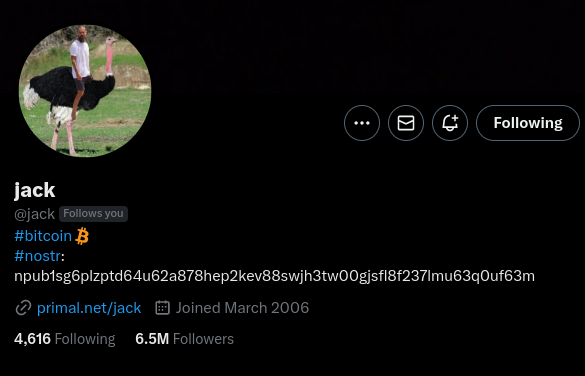
Rabble (one of Twitter's first employees) gave an interesting presentation on Twitter at Nostrica:
It turns out, Twitter was originally built as a federated network. Its founders believed it should have been an open protocol rather than a centralized platform. And they also believed that it was very important for users to be pseudonymous...
It's not all Terrible
While Twitter's API restrictions will surely be a negative for transparency (making it harder for researchers and social scientists) the partial open sourcing of its recommendation logic is better than nothing.
Community Notes, on the other hand, looks to be a promising program for fighting misinformation.
The user experience on Twitter has really gone downhill due to the ads (and my Blue subscription was revoked for using a VOIP phone number.) But seeing ads tagged for misinformation is rather amusing! pic.twitter.com/mEwbNabR7T
— Jameson Lopp (@lopp) March 13, 2023
Twitter's Utility
Clearly there's a huge diversity in Twitter users and thus different folks find different aspects of it valuable. As for myself:
- Getting news, especially breaking news and ongoing situations. At its best, Twitter was incredibly valuable in following things like Arab Spring, BLM protests, Jan 6 protests, etc. Not only would I get updates from mainstream journalists, I could find and follow a lot of people who were on the ground at situations and get information that might not make it to the mainstream media until much later. If you've been paying attention at all in the past decade then you've noticed that MSM now often gets breaking news FROM tweets.
- Engaging with subject matter experts I otherwise would never get to talk to. I myself am a bitcoin / cybersecurity / privacy expert, but if I have a question about agriculture or paleontology, it's suprisingly simple to find folks in those fields.
- Observing celebrities and experts banter. This is a huge appeal that allows Twitter to feel cozy despite being huge - when you can be a fly on the wall and absorb discourse between intelligent folks. Of course, the flip side of this is that your feed can get filled with drama and noise due to beefing and dunking, but that's why curation is key.
- Entertainment. Not in the traditional sense - while there are mainstream comedians on Twitter, there are a plethora of niche comedians who make use of "inside jokes" and cultural quirks of small communities to carve out hilarious content that would never be popular on a meatspace stage. Memelords and shitposters extraordinaire can flourish on this platform!
The thing I find unique about Twitter is that is manages to simultaneously feel like both a small and large community. That is to say: you can find your niche communities and echo chambers, but these small communities are not siloed off to the same extent as on other social networks. The clashes and cross-pollination between communities on Twitter does wonders for discourse and engagement; while the openness can cause moderation challenges it also creates great opportunities and value.
Recommendations
As a Twitter power user for nearly a decade, I have no shortage of suggestions. The monetization options are huge if you actually enable p2p payments...
Imagine how much revenue you could generate if you offered on-demand transactional account-to-account functionality like...
— Jameson Lopp (@lopp) March 29, 2023
"pay to DM"
"pay to unblock"
"pay to prioritize reply"
etc@elonmusk @Twitter
I also continue to be baffled as to why Twitter doesn't prioritize reducing friction between speakers of different languages - this ought to drastically increase its network effects. Once again, nostr is winning on this front.
FYI my nostr client is already autotranslating everything in my feed AND IT IS GLORIOUS. https://t.co/OojZN36uzj
— Jameson Lopp (@lopp) March 10, 2023
As a content creator, I really hate the unpredictability of how embedded content is going to be rendered in different clients and devices.
@elonmusk @TwitterSupport please improve the reliability of tweet previews when there are multiple URLs (of web sites and other tweets) embedded. It's a complete crap shoot as to whether the published tweet will match the preview with regard to which embedded content it renders.
— Jameson Lopp (@lopp) November 14, 2022
I'd love to see actual feed curation tools built into Twitter. I thought about writing an app to do this but... then the API changes made me balk.
Wanted: a dashboard that shows the relative breakdown of who fills my timeline with the most tweets and who has tweets I RT / heart the most. AKA a signal / noise chart so I can figure out who to unfollow. /cc @TwitterSupport
— Jameson Lopp (@lopp) March 10, 2022
Power user request @TwitterSupport: the ability to bulk block or mute every account that has RT'd or liked a specific tweet. This would come in really handy for tweets whose engagement is being manipulated by folks running bot swarms.
— Jameson Lopp (@lopp) January 25, 2022
Several years ago Twitter actually removed their import / export functionality for bulk blocking and muting. I was looking for this functionality when I wanted to block thousands of accounts associated with scams like BSV and HEX, which then led me to want to write a Twitter app for bulk blocking... but you know the drill.
Twitter should also probably put warnings and limits on how many accounts you can follow. I roll my eyes whenever I notice someone follow me and see they are following thousands of other accounts.
Dunbar's number is a thing, and it seem few folks account for it when managing their Twitter follows. https://t.co/mEGQ3oWSn2
— Jameson Lopp (@lopp) April 1, 2023
Even when it was reasonably good, Twitter had a gaping loophole when it came to catching impersonators. As noted, the impersonator problem appears to be worsening again.
Huge loophole for Twitter impersonation bots:
— Jameson Lopp (@lopp) April 17, 2022
1. Report bot
2. Several days later, a support agent reviews the ticket
3. By this point, bot has been rotated to a different identity
4. Support agent closes ticket as not in violation@TwitterSupport should review account history.
Thankfully Twitter did finally add TOTP and U2F 2FA... now they just need to kill SMS 2FA for good.
@twitter @TwitterSupport Please add @yubico & U2F 2FA support and get rid of SMS 2FA KGR8THXBAI
— Jameson Lopp (@lopp) March 16, 2018
Finally, as noted previously, I'd overhaul the entire threading system to make it easier for folks to skip the subthreads they don't care about while drilling down into the conversations they find interesting.
Conclusion
Twitter has been making a ton of changes over the past 6 months. Many of these changes have frustrated users, sometimes to the point of leaving the platform. Musk needs to be careful because there's more competition in the social media sphere these days - while Twitter has a massive network effect upon which it can lean, if it loses a significant portion of its active users, it will be difficult to claw them back.
In general, I find Twitter to be a more confusing and volatile platform today than it was a year ago. The vast majority of changes have degraded my experience. Perhaps my perspective is skewed because I'm a power user, but I've laid out my reasoning for why I believe most users would find their experience to have worsened as well.
If Twitter is to succeed in the long run, it needs to take care that changes are appealing to the 90% of users who only consume content rather than the 1% - 10% of users who create content.
While I'm a big proponent of nostr and am convinced it has huge potential, I'm still active on Twitter... for now.
Twitter is the best MMORPG.
— Jameson Lopp (@lopp) September 9, 2020
Change my mind.


